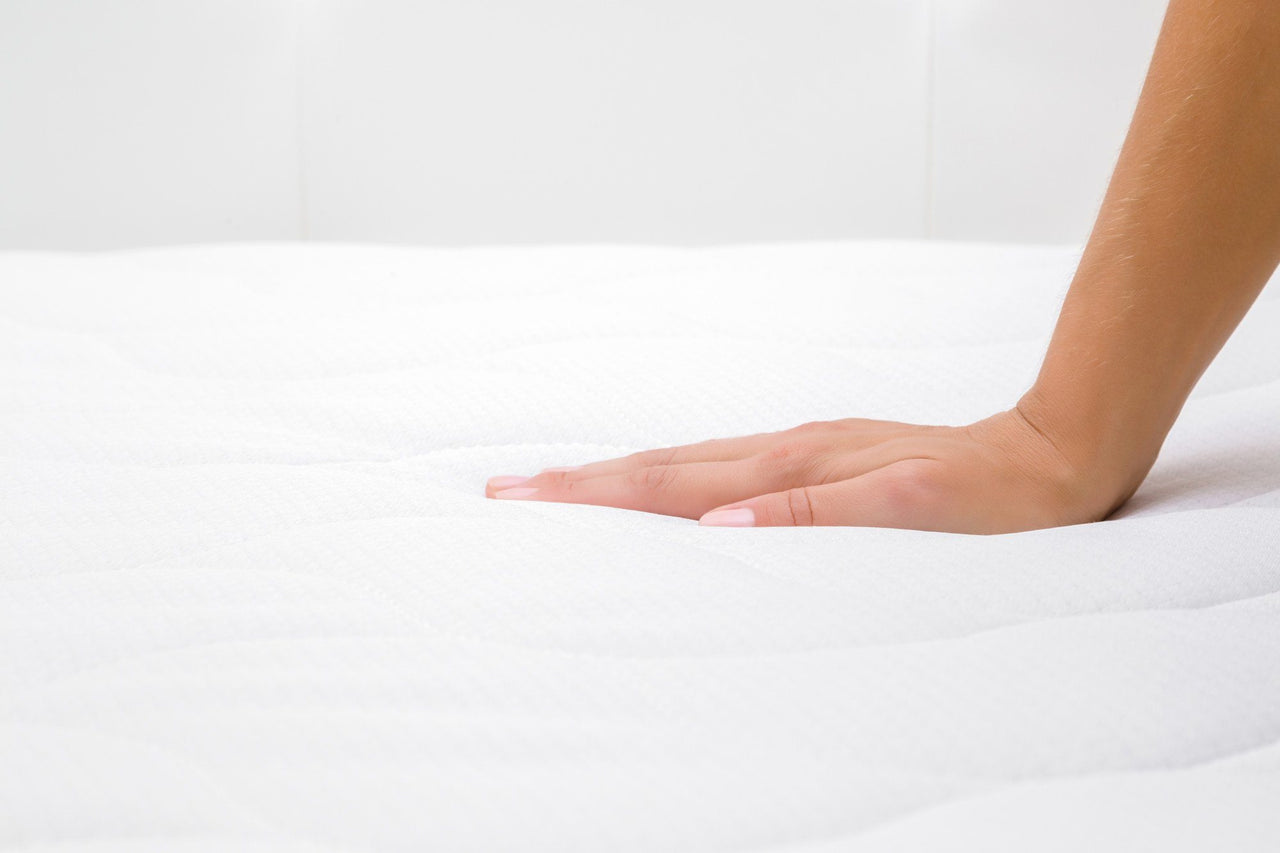Shopping Guide: What to Look For When Buying a New Bed

You will spend more time in your bed than you will anywhere else in your life.
So it needs to be a good one.
There are so many mattresses, bed frames, pillows, and sheets to choose from, though, so how are you supposed to find the right ones for your sleeping needs? It's okay to get some help along the way.
We've put together this shopping guide to help you find the best bed options for you, so let's get started!
The Mattress
When you're buying a new bed, there are two main things you have to consider: the size and the mattress type. First thing's first, though, decide how much space you want to stretch out when you jump into bed at the end of the day.
Size
There are a few standard mattress sizes out there, including:
- Twin — 39" by 75"
- Twin XL — 39" by 80"
- Full — 54" by 75"
- Queen — 60" by 80"
- King — 76" by 80"
If you want to go even bigger than that, there are larger king sizes as well. For example, you can buy a California king, which is 72" by 84", or even an Alaskan king, which is 108" by 108". This is a good choice for families who share the bed with young children or large pets.
But before you go crazy and buy yourself a giant bed, you have to make sure it will fit in your bedroom. Getting a mattress that's too large for the space can make the room feel cramped, especially when you put it on a frame. Always measure your room before you start shopping.
Type
Choosing the right mattress type for you all comes down to your sleeping position.
Back sleepers need a firm mattress that keeps their spine from sinking out of alignment. Side sleepers need a softer mattress that keeps pressure off their hips and shoulders. Stomach sleepers, like back sleepers, also need a firm mattress that gives enough support to prevent neck and back pain.
With that in mind, here's a closer look at the most common mattress types.
- Innerspring — Firm, affordable, bouncy, can be less comfortable than other mattresses
- Foam — Soft, comfortable, good support (depending on the type of foam you choose), can trap heat
- Hybrid — Firm, soft, comfortable, breathable, often more expensive than innerspring or foam
Make sure you find a mattress company that gives you a trial period after you buy a new bed. Then give your body at least four weeks to get used to the change. If the mattress still feels uncomfortable, you might not have the right type for your sleeping needs.
The Bed Frame
Buying a new mattress is only half the battle. Now you have to find a bed frame to go along with it. This is often easier than picking the mattress itself, but you still want to make sure the frame you get matches the rest of your room.
Style
There are countless bed frame styles out there, so to narrow down the choices, you should ask yourself what you want out of a bed frame.
Are you looking for a frame that will give you extra storage (such as under the bed or with built-in drawers)? Do you want a beautiful, four-post frame that will be the centerpiece of the room? Do you want something that gets the job done but doesn't break the bank?
Do some research and look at pictures to figure out which frame style is calling your name.
Material
Again, you'll want the material you choose to fit in with the rest of the room. If you have a lot of wooden furniture already, you might not want to pick a metal frame. Otherwise, it might look awkward and out of place.
If you spend a lot of time relaxing in bed, you might want to choose an upholstered frame. These are often more comfortable than other materials, and they come in almost any color under the sun.
The Pillows
Picking pillows is one of the most important steps when putting together your new bed. Sleeping with the wrong pillows can leave you with a lot of neck and back pain if it doesn't provide the right support. Because of this, you need to consider how you sleep.
- Back Sleeper — needs a firm pillow that will keep their head in line with their spine but that doesn't arch their neck
- Side Sleeper — needs a firm pillow that keeps their head at the same level as their shoulders
- Stomach Sleeper — needs a thin, soft pillow the doesn't lift their head up
- Combination Sleeper — needs a plush pillow that will mold to provide the right support in any position
Once you know what type of pillow you need, you'll be able to find the right fill. Down pillows, for example, are fluffy and soft while memory foam pillows are much firmer.
The Sheets
Your bed sheets should be two things: comfortable and moisture-wicking. This will ensure they stay cozy during the cold months and breathable during the hot, summer months. If you can, buy one of the following materials:
- Silk
- Egyptian cotton
- Pima
- Supima
While this type of sheet is a little more expensive than basic alternatives, they're worth the money. Cheaper sheets will retain heat, which can interrupt your sleep during the night.
Choosing the Best Bed Options: A Complete Shopping Guide
You should never just buy the cheapest bed you can find. Otherwise, you'll likely end up in a lot of pain when you wake up after your first night. Always follow a shopping guide so you end up with the right mattress type for your needs.
Are you on the flip side of this situation, trying to sell beds to people who need them most?




